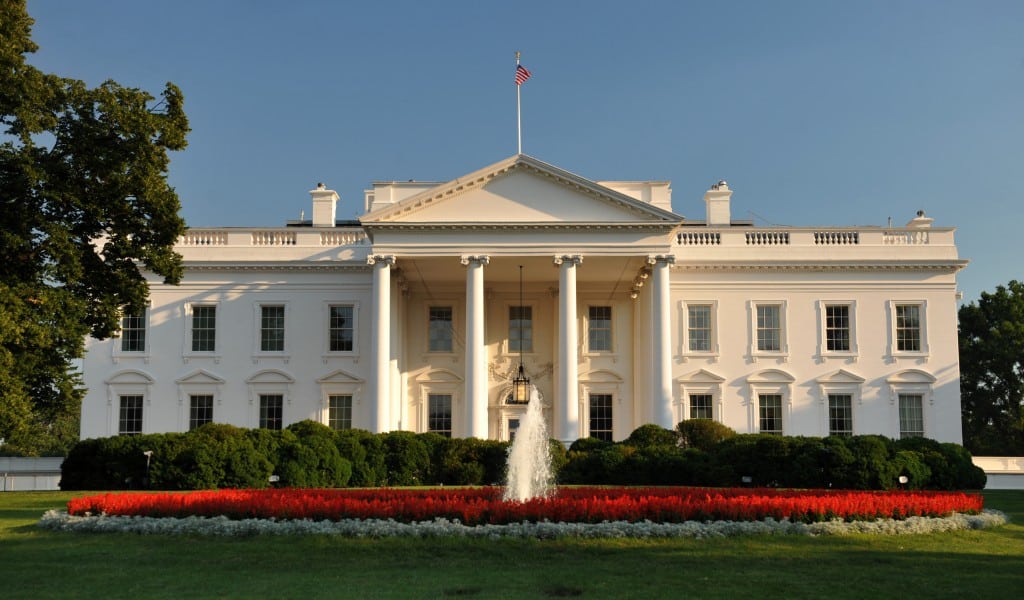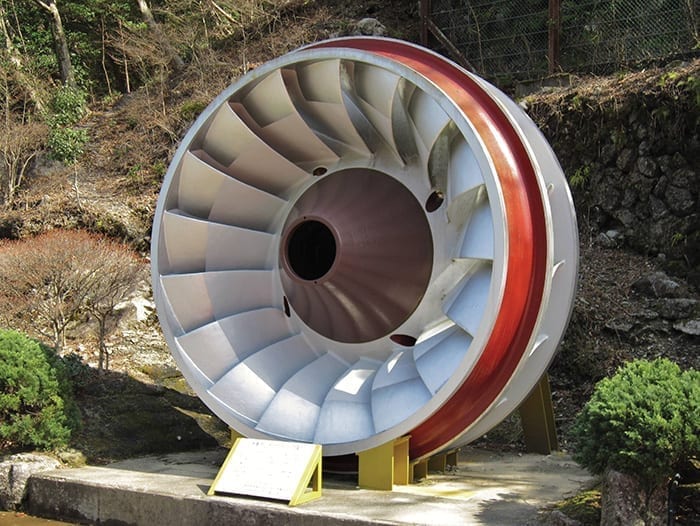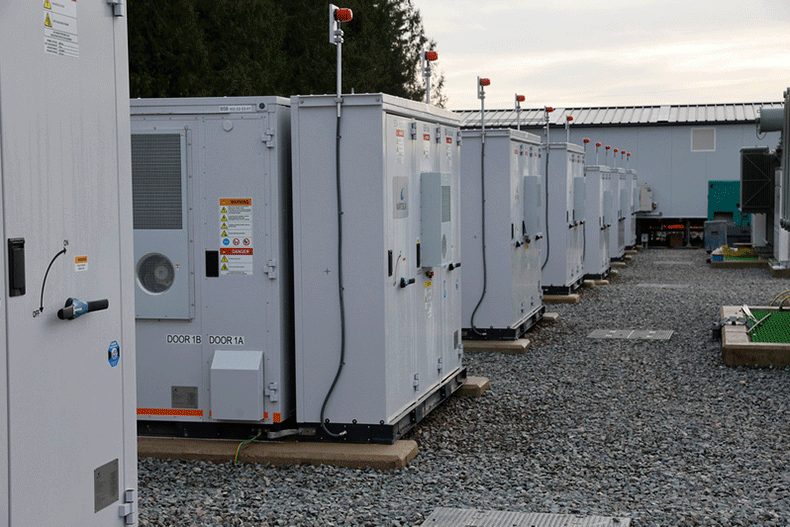Reactions from U.S. energy and legal and regulatory groups began pouring in minutes after the White House confirmed on June 1 that President Trump has directed the Department of Energy (DOE) to act immediately to stop the loss of uneconomic coal and nuclear plants.
White House Press Secretary Sarah Sanders said in a June 1 statement that President Trump believes in “total energy independence and dominance, and that keeping America’s energy grid and infrastructure strong and secure protects our national security, public safety and economy from intentional attacks and natural disasters.”
Because “impending retirements of fuel-secure power facilities are leading to a rapid depletion of a critical part of our nation’s energy mix, and impacting the resilience of our power grid,” the president has directed Energy Secretary Rick Perry to “prepare immediate steps to stop the loss of these resources, and looks forward to his recommendations,” she said.
The White House confirmation comes hours after the leak of a Trump administration draft memo outlining a plan for federal action to prop up coal and nuclear plants that were unable to compete in wholesale power markets and faced retirement. Details of plan outlined in the memo are here: “Trump Administration to Force Purchases of Coal, Nuclear Power.”
Unprecedented Government Intervention
In a joint statement, a diverse group of energy industry associations including energy efficiency and storage, natural gas, oil, solar, and wind, condemned the action, saying the subsidized “failing coal and nuclear plants. The proposed action is “misguided” and “would hurt consumers,” the group said.
Most comments lambasted the government’s intervention in energy markets to provide assistance to coal and nuclear plants.
Todd Snitchler, American Petroleum Institute Market Development Group Director, said the plan “under the guise of national security would be unprecedented and misguided.” The natural gas and oil industry plays a leading role in reducing dependence on foreign energy, and the U.S. is on track to achieve energy dominance around the world, he noted. “However, unprecedented government intervention in the energy markets to support high cost generation will put achieving that vision in jeopardy and hurt customers by taking more money out of their pockets rather than letting people keep more of what they earn—a key priority of this administration.”
John E. Shelk, president and CEO of the Electric Power Supply Association—whose members are generators that bank on revenues in wholesale markets, including independent power producers, noted that the plan would “needlessly raise the costs for consumers, and “merely shifts the risk of premature retirement to newer, more efficient power plants that compete with coal and nuclear.” As a number of other entities noted, Shelk said no energy emergency existed, and the rash plan could have widespread and long-wearing effects. “There is none today that justifies such unprecedented Executive Branch intervention in the economic life of the country,” he said. “The economic consequences are profound for power suppliers and consumers. This proposed federal action is a bell that cannot be called back once it is rung. Forever more suppliers and consumers will be at the whim of the fuel preferences of whoever happens to be in office.”
Dena E. Wiggins, president and CEO of the Natural Gas Supply Association railed against the plan’s proposal to prop up uneconomic plants through the Defense Production Act, the Federal Power Act, “or other unnecessary federal intervention is a short-sighted action that drives up customer costs and undermines well-functioning power markets.” Wiggins pointed to “an inappropriate use of the federal government’s emergency powers that is even more egregious when even the regional power grid authorities at PJM say there is no emergency. We need to move away from a narrow focus on resuscitating individual projects and refocus the discussion on what lies at the heart of resiliency – the ability to reliably serve power customers in the most cost-efficient manner over both the short and the long-term.”
Undermining Market Stability for New Entrants
Kelly Speakes-Backman, CEO of the Energy Storage Association, said fair competition for all market participants was imperative, and incentives for specific generators could create uncertainty for new market entrants. She noted that participants rely on consistent and stable price formation signals. “Any action that undermines market stability to support new entrants like energy storage—resources that enhance grid resilience and reduce costs to consumers—will erode opportunities to create a more reliable and resilient, efficient, sustainable and affordable grid.”
Wind and solar industry trade organizations, and a handful of major environmental groups, suggested that the Trump administration hadn’t considered the evolving power landscape. “A policy to spend billions of dollars keeping uneconomic power plants afloat, while trying to put clean and affordable solar on the sidelines, is not a recipe for economic success,” said Christopher Mansour, Solar Energy Industries Association vice president for Federal Affairs. “Energy experts across a range of industries, within the federal government and in academia have agreed that this sort of effort will create a bloated power sector deploying outmoded technologies. We urge policymakers to again block this ill-advised effort to keep plants running that most electric utilities have already decided to abandon, and for good reason.”
Amy Farrell, senior vice president for Government and Public Affairs at the American Wind Energy Association, noted that independent energy regulators, grid operators and other experts have gone on the record “to declare that orderly power plant retirements do NOT constitute an emergency for our electric grid.” Farrell added that infrastructure and processes are already in place to ensure that remains the case. “The reported proposal would be a misapplication of emergency powers, there’s certainly no credible justification to force American taxpayers to bailout uneconomic power plants.”
The Environmental Defense Fund (EDF), an environmental advocacy group, pointed out the DOE’s draft plan is the newest development in a string of attempts to prop up coal and nuclear. “FirstEnergy has spent years trying every possible avenue to prop up its uneconomic, unnecessary power plants, often relying on political contributions and high-powered lobbyists. Two arcane laws the utility giant has pointed to include the Defense Production Act and Section 202(c) of the Federal Power Act, both of which will likely form the basis of President Trump’s new directive,” it said. “We don’t know yet how today’s move will affect FirstEnergy, but it’s clear Washington’s new swamp has created a monster: A multi-billion dollar attack on American families, markets and the law.” EDF said it will “forcefully” oppose the plan “every step of the way.”
The Legal Perspective
Industry observers from the legal realm appeared just as horrified. Jason Johns, a partner at Stoel Rives who advises independent power producers, utilities, and large users of power resources about matters concerning power markets and state and federal energy regulatory arenas, said that the Trump administration’s “transparent efforts to meddle with market realities under the pretext of national security, and the continued push to resolve the imaginary, and woefully undefined, issue of grid resilience—something that America’s wholesale energy market operators largely laughed at and rejected—simply fails the smell test.”
He continued: “In fact, it reeks and appears to be little more than a tantrum thrown in response to FERC’s surgical dismantling of the DOE’s similar demand last year.”
Johns pointed out that several states have moved to subsidize nuclear power already, which is likely why the Trump administration’s efforts “cannot be meant for much more than coal plants.” Jobs aren’t an issue: “The solar industry alone employs more Americans than the coal industry. If the President were concerned with this country’s future, then he would push for the greater advancement of renewable resources,” he noted.
Rabeha Kamaluddin, a partner in the international law firm Dorsey & Whitney’s Regulatory Affairs group, said: “Any plan to bail out coal and nuclear plants using the emergency powers under Section 202(c) Federal Power Act will likely face significant challenges at both the agency and judicial levels. Such powers have been invoked in very limited instances, and in those instances, ’emergencies’ have pertained to natural disasters, hurricanes, and major blackouts—events that hit at the core of grid reliability and power supply.”
Kamaluddin, who focuses her practice on energy regulation, compliance, and enforcement matters and represents clients before the Federal Energy Regulatory Commission, added that “Without connecting the emergency to such things, this unprecedented plan will likely face challenges passing judicial scrutiny. If the plant is successful in passing such scrutiny, it will allow for a broader interpretation of emergency under the Federal Power Act, and open the door for the DOE/FERC to invoke such powers in future cases where the underlying reason for the emergency is an economic one.”
—POWER’s editors (@POWERmagazine)


















